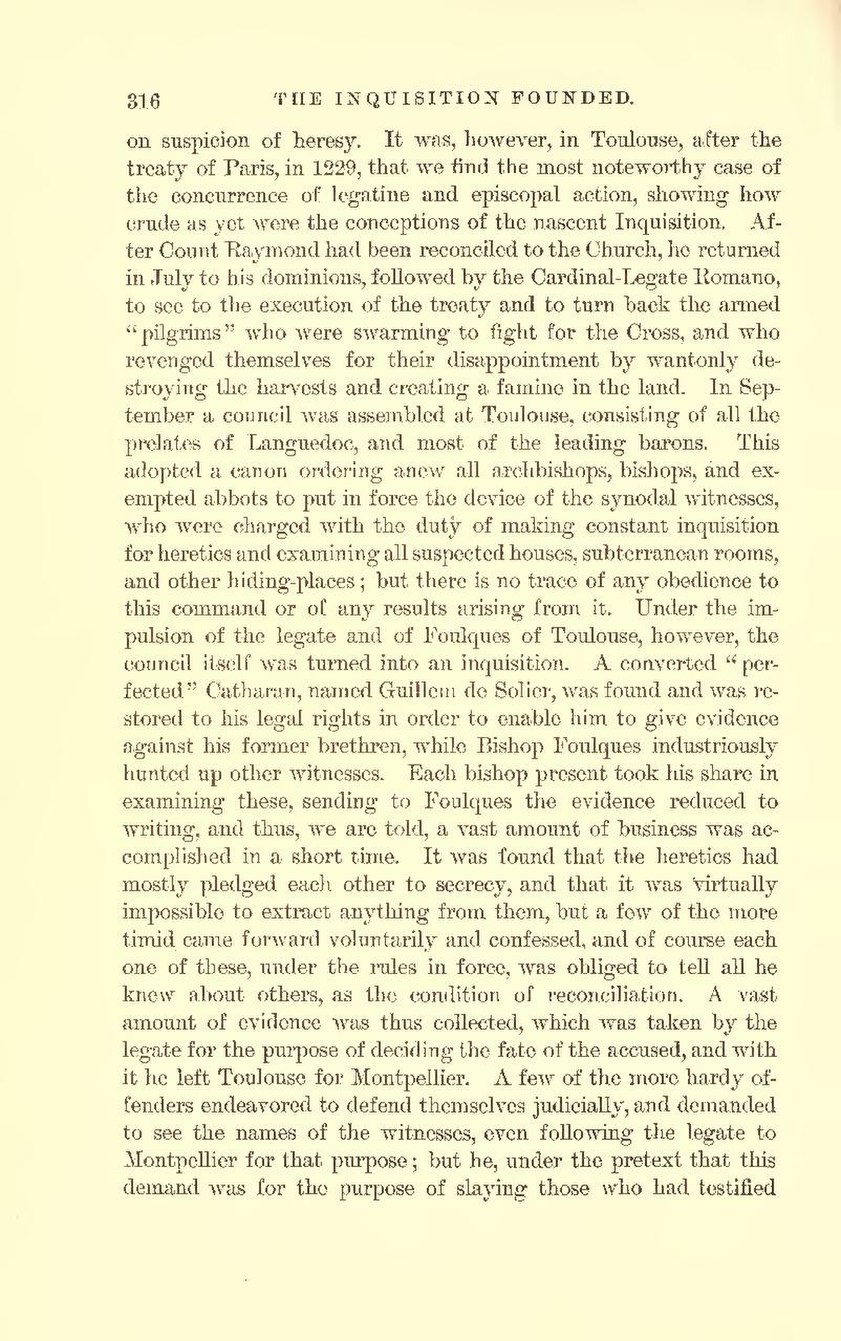on suspicion of heresy. It was, however, in Toulouse, after the treaty of Paris, in 1229, that we find the most noteworthy case of the concurrence of legatine and episcopal action, showing how crude as yet were the conceptions of the nascent Inquisition. After Count Raymond had been reconciled to the Church, he returned in July to his dominions, followed by the Cardinal-Legate Romano, to see to the execution of the treaty and to turn back the armed "pilgrims" who were swarming to fight for the Cross, and who revenged themselves for their disappointment by wantonly destroying the harvests and creating a famine in the land. In September a council was assembled at Toulouse, consisting of all the prelates of Languedoc, and most of the leading barons. This adopted a canon ordering anew all archbishops, bishops, and exempted abbots to put in force the device of the synodal witnesses, who were charged with the duty of making constant inquisition for heretics and examining all suspected houses, subterranean rooms, and other hiding-places ; but there is no trace of any obedience to this command or of any results arising from it. Under the impulsion of the legate and of Foulques of Toulouse, however, the council itself was turned into an inquisition. A converted "perfected" Catharan, named Guillem de Solier, was found and was restored to his legal rights in order to enable him to give evidence against his former brethren, while Bishop Foulques industriously hunted up other witnesses. Each bishop present took his share in examining these, sending to Foulques the evidence reduced to writing, and thus, we are told, a vast amount of business was accomplished in a short time. It was found that the heretics had mostly pledged each other to secrecy, and that it was virtually impossible to extract anything from them, but a few of the more timid came forward voluntarily and confessed, and of course each one of these, under the rules in force, was obliged to tell all he knew about others, as the condition of reconciliation. A vast amount of evidence was thus collected, which was taken by the legate for the purpose of deciding the fate of the accused, and with it he left Toulouse for Montpellier. A few of the more hardy offenders endeavored to defend themselves judicially, and demanded to see the names of the witnesses, even following the legate to Montpellier for that purpose ; but he, under the pretext that this demand was for the purpose of slaying those who had testified
Page:A History of the Inquisition of the Middle Ages-Volume I .pdf/336
316
THE INQUISITION FOUNDED.
